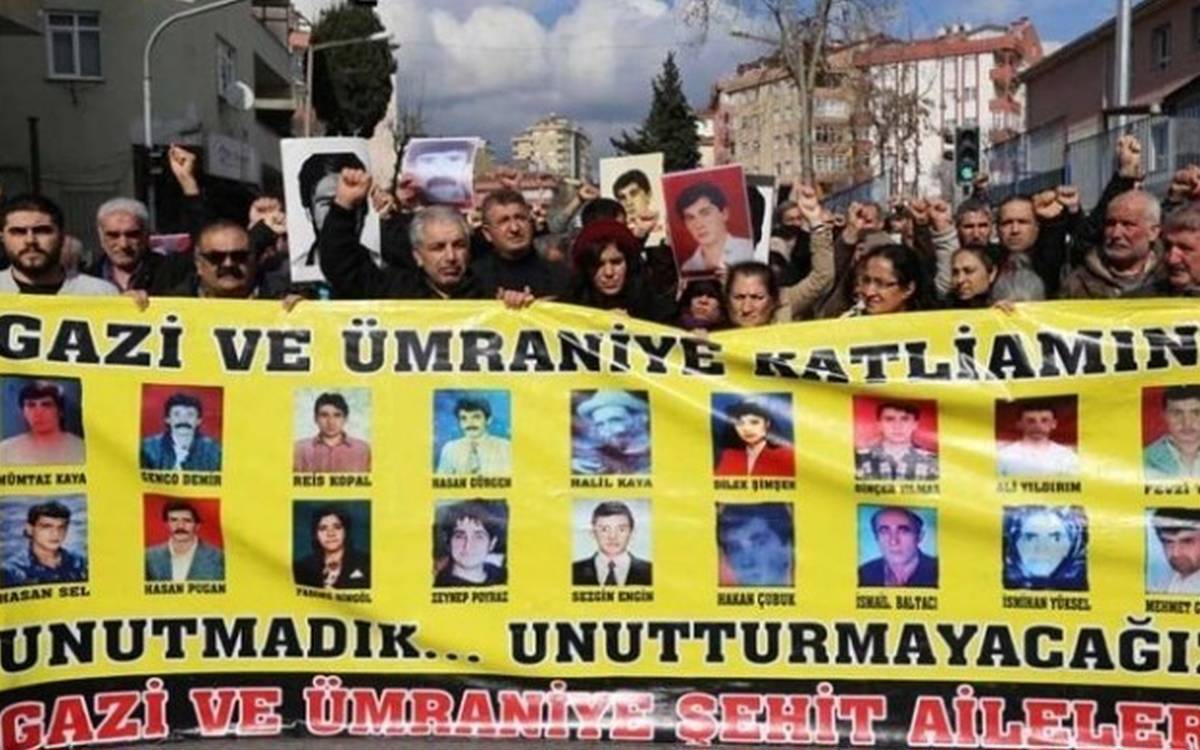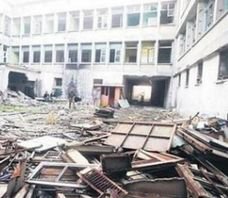The final hearing for the trial involving over 200 police officers in connection with the Ümraniye massacre, where 23 lives were lost, and 408 were injured between March 12-15, 1995, took place on December 18 at the İstanbul Anatolian 2nd Heavy Penal Court.
In the previous session, the prosecutor had requested the dismissal of the case against deceased suspects and acquittal for the remaining defendants. Speaking about the prosecutor's opinion, Attorney Faruk Nafiz Ertekin highlighted the incomplete nature of the investigation and stated that a conclusive decision cannot be reached with inadequate inquiries and proceedings, especially following the European Court of Human Rights (ECtHR) decision.
Ertekin emphasized that from the beginning of the trial, their requests were not granted, including the refusal to listen to radio recordings, conduct inspections, and ballistic examinations. Notably, the case file lacks information on long-barreled weapons despite evidence confirming the firing of a total of eight bullets. The request to hear the testimony of the then Intelligence Department Deputy Director Hanefi Avcı was also denied.
Ertekin asserted that the decision had been made before the trial even started.
Attorney Gülizar Tuncer, linking the Ümraniye Massacre to the Gazi Massacre, expressed that both incidents aligned with the special warfare concept of that era. Tuncer contended that Gazi, a place where Alevis, Kurds, and individuals involved in organized struggles lived, was deliberately selected. She argued that the attacks on coffeehouses and military and police assaults on the funerals of the deceased were acts of counter-guerrilla, a sentiment reportedly voiced by Hanefi Avcı.
Tuncer added that Hanefi Avcı was not heard in the Gazi Massacre Case, and his statements to the press were not taken into account. She stressed that the crucial aspect was not the prosecution of trigger-happy police officers but holding accountable those who gave orders, incited, and planned the massacre.
The court, in its ruling, declared the acquittal of the prosecuted individuals.
In a statement to the Yeni Demokrasi news site, Tuncer asserted that this was a long-anticipated decision, emphasizing that the Gazi and Ümraniye massacres constituted crimes against humanity and that accountability would eventually be demanded.
Background
On March 12, 1995, three coffeehouses and a bakery in Gazi Mahallesi were sprayed with gunfire from a car. When the public, wanting to protest the deaths, marched towards the police station, they were fired upon, resulting in 17 casualties. In Ümraniye, gunfire was opened on the crowd, leaving approximately 300 people injured according to official records.
For the deaths in Gazi Mahallesi, a trial was initiated against 20 police officers at the Eyüp 2nd Heavy Penal Court but was later moved to Trabzon Heavy Penal Court due to "security reasons." The case concluded in November 2001, with Police Officer Ahmet Albayrak receiving a reduced sentence of 3 years and 24 months in prison and temporary deprivation from public services for 9 months. Mehmet Gündoğan, convicted of killing one person, received a sentence of 1 year and 8 months in prison and a 3-month ban from public services. Both sentences were postponed under Law No. 4616. Notably, 18 police officers were acquitted. The convicted officers returned to duty shortly after the trial.
The families of the victims took the case to the European Court of Human Rights (ECtHR), which found that Turkey had violated the right to life and the right to appeal to national authorities under Articles 2 and 13 of the European Convention on Human Rights (ECHR). Turkey was ordered to pay compensation.
Protests in the 1 Mayıs Neighborhood, extending to Ümraniye, resulted in the loss of five lives. Approximately a week-long series of incidents in the area claimed a total of 23 lives. After the Ümraniye Massacre case was retried following a 2018 annulment by the Court of Cassation, a verdict has now been reached, sparking controversy and prompting reflections on the pursuit of justice for the victims. (AS/VK)








